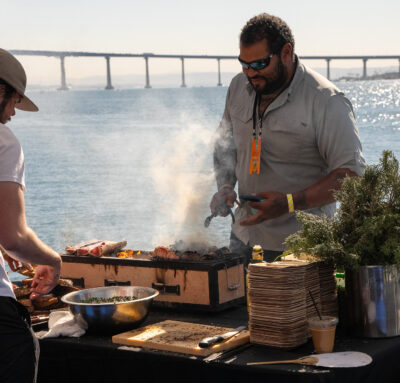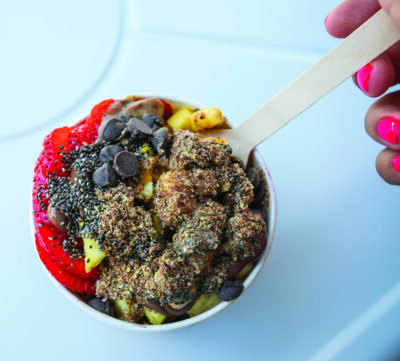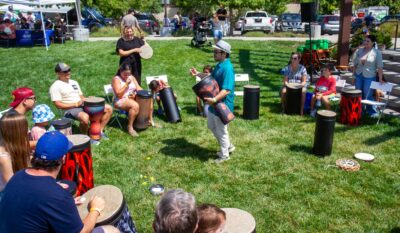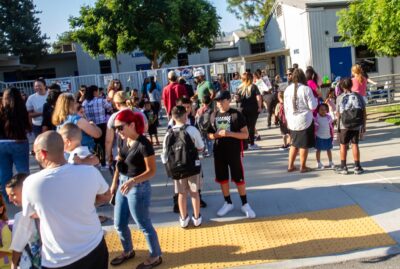Talk about fin-tastic.
The Santa Clarita Sharks have spent the past three months preparing to compete in the Special Olympics Summer Games this weekend in Long Beach.
The 10 athletes, who among 1,300 athletes competing, are associated with the nationwide Special Olympics organization, designed to “provide meaningful training and competition opportunities for persons with intellectual disabilities,” according to its website.
“We’re the Santa Clarita Sharks. My team is competing in the 100 meter dash, a lot of them, and then the 200 meter run. Then we have a shot put event. I have one walker who does the 50 meter walk, 100 meter walk. And then I know they also have wheelchair events for anybody who’s in a wheelchair. So it’s open to anybody with any ability, really,” head coach Heidi Due said.
The athletes, who are in the spring season, have been practicing Saturdays at Saugus High School for an hour and a half for the past couple of months.

“From mid-March to May, we have two regional competitions. We always go to the Glendale Spring Games and then Hart always hosts. To be able to qualify for the Summer Games in Long Beach, you have to have participated in two prior regional games,” Due said.
Due was inspired to join nine years ago as an assistant coach to be hands-on with her daughter, Karina, who is now 21.
“Karina was 12 the first season I brought her to track, but she’s low-functioning, and she needs a lot of encouragement and assistance. So I wanted to become a coach to help her, because as a mom, you could do a little bit more extra,” Due said. “This team has camaraderie, excitement. They’re all characters. They’re funny. The athletes are fun to be around, and I couldn’t imagine not doing it, even if I didn’t have Karina.”
According to Due, members of each seasonal team have to be at least 8 years old, but other than that they can be any age to join. However, there is a strong focus on fairness in participation.
“The first couple of practices every season, we make everybody run, and I time them and submit them. [If they have different skill levels] they should not be in the same heat because their ability is different. At competition time, they are divided into age ranges, and then male and female, to make sure that everybody has a chance,” Due said.

De’Mondre Monroe, who is 25 and has been a participant in the Special Olympics since 2012, discussed what he liked most about the experience.
“I’ve had a really fun experience through the Special Olympics. I feel excited about [this competition], and a little bit nervous, but I tend to fight through it. I am doing the 200 meter run, the 100 meter run, the 400 relay and shot put,” Monroe said. “I would say that I’m fast, but I have to practice being fast and tell myself not to ever give up.”
Monroe finds that although being an athlete is fun, sportsmanship is much more important.
“Being with my teammates is like being with family. I have to make sure that they don’t feel sad or frustrated or angry. I need to make sure that they have good spirits. I love to motivate, encourage and cheer for my teammates. Showing good sportsmanship is very important to me,” Monroe said.
Due strongly encourages anyone interested in volunteering, whether an aspiring coach or a high schooler who needs volunteer hours, to volunteer.
“We always need volunteer coaches because we follow a ratio of four to one. So it’s one coach for every four athletes. If I don’t get enough coaches, a lot of athletes get put on the wait list because they won’t break that ratio,” Due said.









